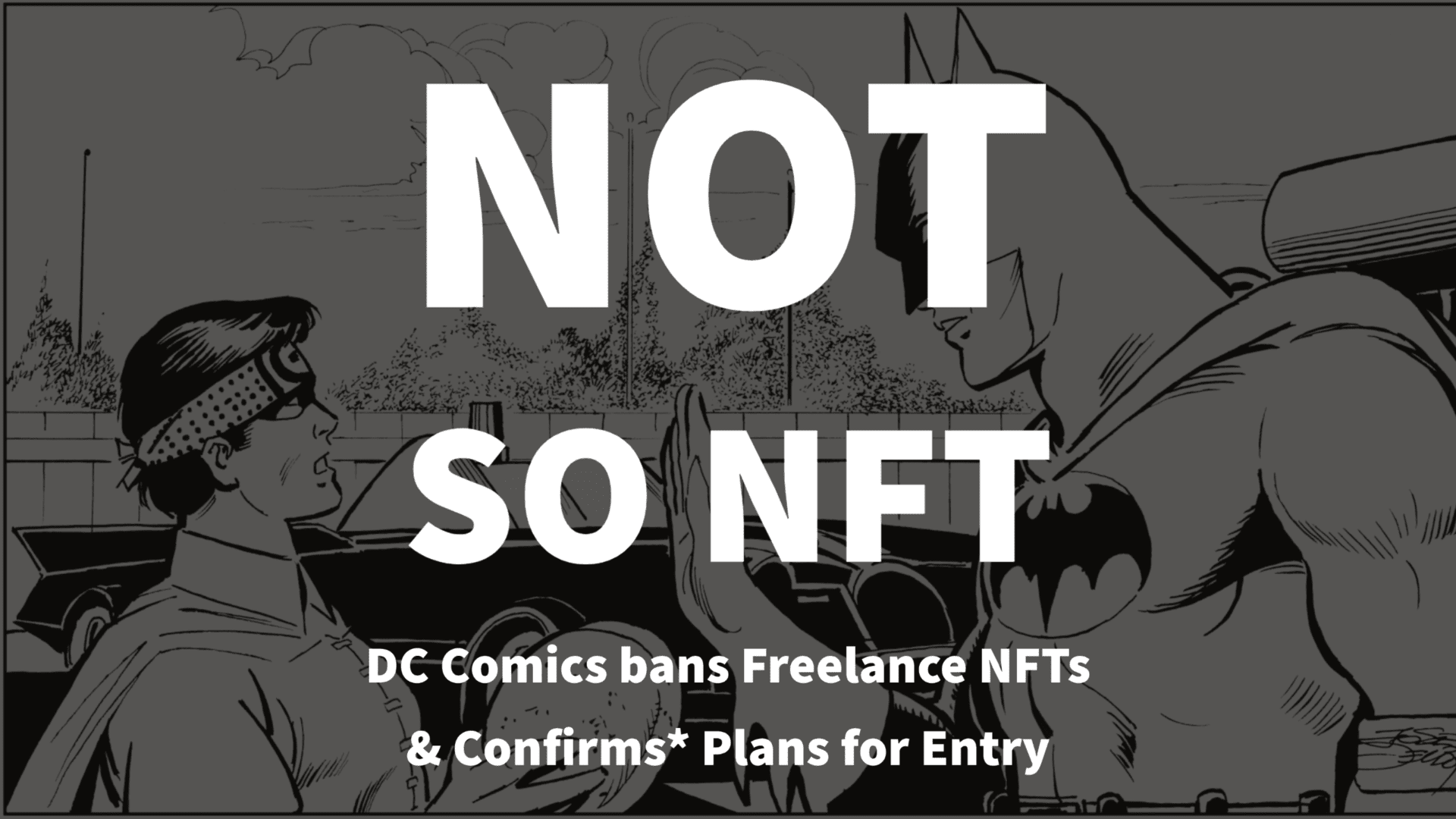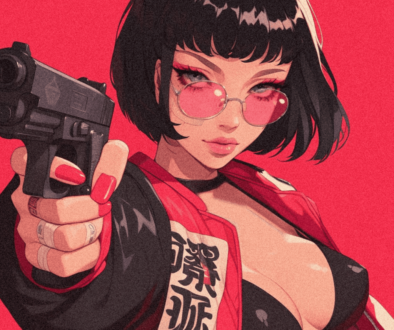Not So NFT: Batman is off limits
DC Comics lays down the NFT ban-hammer on their artists
The corporatization of NFTs grows by the day as conglomerates like Time Warner (Owner of Warner bros (owner of DC Comics))) begin exploring ways to enter the NFT Market. In a letter that was published last Thursday, Jay Kogan SVP legal affairs sent teh following to freelancers:
Non-Fungible Tokens (NFTs) are becoming the newest fan collectibles and have generated significant press and buzz in the digital space. DC is exploring opportunities to enter the market for the distribution and sale of original DC digital art with NFTs including both new art created specifically for the NFT market, as well as original digital art rendered for DC’s comic book publications.
As DC examines the complexities of the NFT marketplace, and we work on a reasonable and fair solution for all parties involved, including fans and collectors, please note that the offering for sale of any digital images featuring DC’s intellectual property with or without NFTs, whether rendered for DC’s publications or rendered outside the scope of one’s contractual engagement with DC, is not permitted. If you are approached by anyone interested in including any of your DC art in an NFT program, please let Lawrence Ganem, DC’s VP, Talent Services know.
We expect the participation of DC’s freelance talent will be an integral component of the NFT program that DC puts into place. We’ll share further information as it becomes available, and we appreciate your cooperation and partnership.
This Letter was sent by DC Comics, Jay Kogan, senior vice president, legal affairs to company freelancers.
This complicates matters for famous artists like Jose Delgo that have already done a myriad of comic related drops across famous NFT marketplaces like MakersPlace, SuperRare, and Nifty Gateway. It will be interesting to see how the artists and market respond. One thing is certain, the likely price of these rare NFTs is likely to increase.
DC Comics wants to Launch NFTs
We’ve discussed the imminent arrival of additional corporate NFTs when discussing licensing challenges via deals with Topps as well as the likely arrival of Pokemon NFTs in the near future. As massive wealth enters the NFT market through the volume of collectors, the legal efforts will follow suit. Collectors are likely safe, but artists that leverage IP from these brands (we expect Nintendo to be one of the largest defenders of their IP) Artists that have profited from creating NFTs featuring artists they don’t control will create havok in 2021. We will dive into this topic in more detail in a future post, but if you’re an artist profiting from corporate IP, watch out. They’re coming for you.
Copyright and NFTs are a tricky business but Legal teams have energy and expertise
If this plays out as expected, these large media firms will put tremendous pressure on the marketplaces and the artists almost immediately, (if they havent already). This will be easier for top-tier nft marketplaces to overcome as they’ve designed their marketplaces to focus on the artist first and the drops are usually curated and monitored in advance. As we move down the marketplace tier and artists can easily enter the marketplace (or sign up on their own) the challenges will mount. In the near future, we suspect more marketplaces adopting language that better protects them in their T&C’s and puts even more pressure on the artist.
Copyright Overview
- Copyright is a form of protection provided by the laws of the United States to the authors of “original works of authorship,” including literary, dramatic, musical, artistic, and certain other intellectual works. This protection is available to both published and unpublished works.
- Section 106 of the 1976 Copyright Act generally gives the owner of copyright the exclusive right to do and to authorize others to do the following:
- To reproduce the work in copies or phonorecords;
- To prepare derivative works based upon the work;
- To distribute copies or phono records of the work to the public by sale or other transfer of ownership, or by rental, lease, or lending;
- To perform the work publicly, in the case of literary, musical, dramatic, and choreographic works, pantomimes, and motion pictures and other audiovisual works;
- To display the work publicly, in the case of literary, musical, dramatic, and choreographic works, pantomimes, and pictorial, graphic, or sculptural works, including the individual images of a motion picture or other audiovisual work.
- In the case of sound recordings,* to perform the work publicly by means of a digital audio transmission.
- In addition, certain authors of works of visual art have the rights of attribution and integrity as described in section 106A of the 1976 Copyright Act.
- It is illegal for anyone to violate any of the rights provided by the copyright law to the owner of copyright. These rights, however, are not unlimited in scope. One major limitation is the doctrine of “fair use,” which is given a statutory basis in section 107 of the 1976 Copyright Act. In other instances, the limitation takes the form of a “compulsory license” under which certain limited uses of copyrighted works are permitted upon payment of specified royalties and compliance with statutory conditions.
- Do I have to register with your office to be protected? – No. In general, registration is voluntary. Copyright exists from the moment the work is created. You will have to register, however, if you wish to bring a lawsuit for infringement of a U.S. work.
For more information, goto the U.S. Copyright office directly.
*This is not legal advice. If you have any questions about legality of NFTs or anything else, please consult a lawyer.



